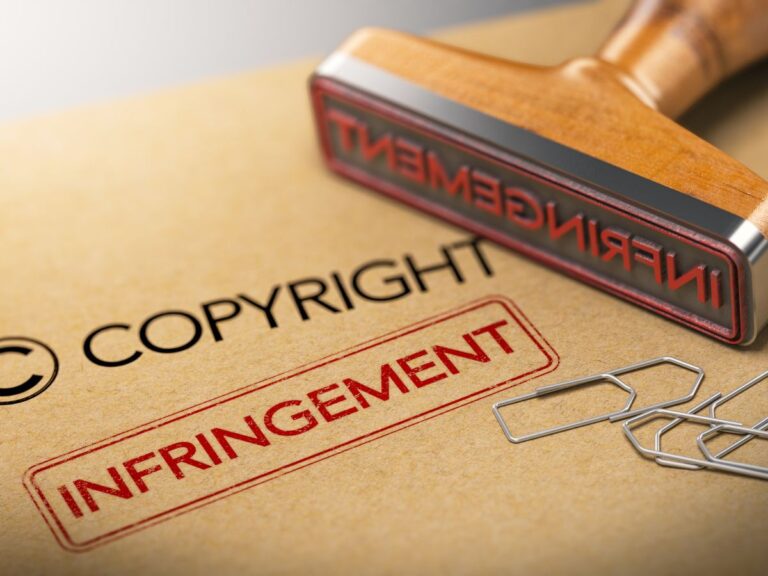Top Intellectual Property Mistakes Small Businesses Make
Table of Contents
Top Intellectual Property Mistakes Small Businesses Make
In today’s competitive business landscape, small businesses often face numerous challenges. One critical area that requires attention is intellectual property (IP) protection. Intellectual property refers to creations of the mind, such as inventions, designs, logos, and artistic works, which can provide significant value to a business. Unfortunately, many small businesses make mistakes when it comes to safeguarding their intellectual property rights. In this article, we will explore the top intellectual property mistakes that small businesses commonly make and provide valuable insights on how to avoid them.
The Importance of Intellectual Property for Small Businesses
Intellectual property is a crucial asset for small businesses. It provides them with a competitive edge, establishes brand identity, and protects innovations from being copied or stolen. However, several mistakes can compromise the security and value of intellectual property. By being aware of these mistakes and taking appropriate measures, small businesses can safeguard their creations and prevent potential legal disputes.
Mistake 1: Failing to Conduct Adequate IP Research
One common mistake small businesses make is failing to conduct thorough research before developing a new product, service, or brand. By neglecting to investigate existing patents, trademarks, or copyrights, they risk infringing on someone else’s intellectual property. This oversight can lead to costly legal battles, damage to reputation, and even forced rebranding or product recall. To avoid this, small businesses must invest time and resources in comprehensive IP research before launching any new venture.
Mistake 2: Neglecting to Register Trademarks
A strong and recognizable brand is essential for small businesses to succeed. However, many entrepreneurs make the mistake of neglecting to register their trademarks. Without proper registration, businesses cannot fully protect their brand identity from infringement. Registering trademarks provides legal exclusivity, preventing others from using similar names, logos, or slogans in the same industry. Small businesses should prioritize trademark registration to safeguard their brand and maintain a competitive advantage.
Mistake 3: Overlooking the Importance of Confidentiality Agreements
Small businesses often collaborate with various individuals, including employees, contractors, and business partners. However, failing to establish confidentiality agreements can jeopardize valuable trade secrets and proprietary information. Without a signed agreement, the risk of confidential information being leaked or misused increases significantly. Small businesses should require all parties involved to sign confidentiality agreements to protect their intellectual property and maintain trust.
Mistake 4: Ignoring Copyright Infringement Risks
In the digital age, content creation and distribution are prevalent for small businesses. However, disregarding copyright infringement risks can lead to severe consequences. Using images, music, or written content without proper authorization or licensing can result in legal penalties and damage to the business’s reputation. Small businesses should ensure they have the necessary permissions or licenses to use copyrighted material and respect the intellectual property rights of others.
Mistake 5: Poorly Managing Trade Secrets
Trade secrets are valuable assets that give small businesses a competitive advantage. However, inadequate protection and management of trade secrets can put them at risk. Small businesses should implement strict security measures, such as restricted access to confidential information and password-protected systems, to prevent unauthorized access. Regularly reviewing and updating internal policies and procedures is essential to maintain the integrity and secrecy of trade secrets.
Mistake 6: Underestimating the Value of Patents
Patents play a crucial role in protecting inventions and innovations. Small businesses often underestimate the value of patents, assuming they are only for large corporations or complex technologies. However, failing to pursue patent protection can leave small businesses vulnerable to competitors who may replicate their products or processes. It is vital for entrepreneurs to assess their inventions’ patentability and consult with intellectual property professionals to determine the best course of action.
Mistake 7: Neglecting International IP Protection
Expanding into international markets can present new opportunities for small businesses. However, entering foreign territories without considering international IP protection can be detrimental. Intellectual property laws vary from country to country, and without proper safeguards, small businesses risk losing their IP rights or facing infringement issues overseas. Seeking legal advice and filing for international IP protection, such as trademarks or patents, is crucial when conducting business globally.
Mistake 8: Neglecting IP Enforcement Strategies
Securing intellectual property rights is only half the battle. Many small businesses make the mistake of neglecting IP enforcement strategies. They fail to monitor and actively protect their intellectual property, allowing infringers to go unnoticed. Small businesses should implement robust monitoring systems, conduct regular searches for potential infringements, and take immediate action when violations occur to maintain the integrity of their IP assets.
Mistake 9: Engaging in Trademark Infringement
While small businesses aim to establish unique brand identities, some unintentionally engage in trademark infringement. This can occur when entrepreneurs choose names, logos, or slogans that are confusingly similar to existing trademarks. Such actions can lead to legal disputes, brand dilution, and financial liabilities. Small businesses must conduct a thorough trademark search and consult with legal professionals to ensure their chosen brand elements do not infringe upon others’ rights.
Mistake 10: Not Seeking Legal Advice
Perhaps the most significant mistake small businesses make is not seeking legal advice regarding intellectual property matters. Without proper guidance, entrepreneurs may overlook crucial steps, misinterpret legal requirements, or fail to address potential risks adequately. By consulting with an experienced intellectual property attorney, small businesses can navigate the complexities of IP law, protect their valuable assets, and mitigate the chances of costly legal disputes.
Conclusion
Protecting intellectual property is of utmost importance for small businesses. By avoiding the top intellectual property mistakes discussed in this article and implementing appropriate strategies, entrepreneurs can secure their creations, maintain a competitive edge, and safeguard their business’s long-term success. Remember, intellectual property is a valuable asset that should be treated with care and given the necessary legal protection.













